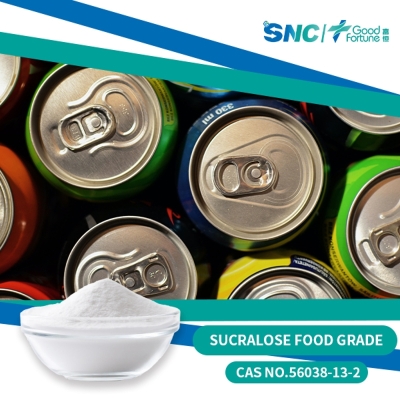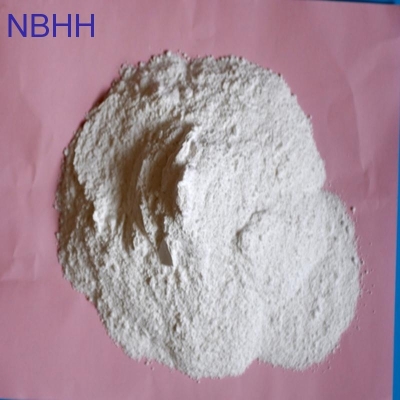-
Categories
-
Pharmaceutical Intermediates
-
Active Pharmaceutical Ingredients
-
Food Additives
- Industrial Coatings
- Agrochemicals
- Dyes and Pigments
- Surfactant
- Flavors and Fragrances
- Chemical Reagents
- Catalyst and Auxiliary
- Natural Products
- Inorganic Chemistry
-
Organic Chemistry
-
Biochemical Engineering
- Analytical Chemistry
-
Cosmetic Ingredient
- Water Treatment Chemical
-
Pharmaceutical Intermediates
Promotion
ECHEMI Mall
Wholesale
Weekly Price
Exhibition
News
-
Trade Service
A few days ago, four professional institutions, Kexin Food and Health Information Exchange Center, Institute of Nutrition and Health of Chinese Center for Disease Control and Prevention, Food Hygiene Branch of Chinese Preventive Medicine Association, and Health Communication Branch of Chinese Preventive Medicine Association, issued the Scientific Consensus on Food Sweeteners (2022) (hereinafter referred to as "Consensus"), which aims to help the public have a more comprehensive understanding of sweeteners in order to choose appropriate foods
according to their own needs.
according to their own needs.
At present, the average daily intake of 9.
1 grams of sugar per person by urban residents aged 3 and above in China is far lower than the control amount
of 50 grams per day recommended in the "Dietary Guidelines for Chinese Residents (2022)".
Although most consumers do not need to strictly control sugar, the sugar intake of children and adolescents has been increasing year by year in recent years, which should cause concern; In addition, people who are overweight, obese and diabetic, and people with chronically high blood sugar also need to control their added sugar intake
.
1 grams of sugar per person by urban residents aged 3 and above in China is far lower than the control amount
of 50 grams per day recommended in the "Dietary Guidelines for Chinese Residents (2022)".
Although most consumers do not need to strictly control sugar, the sugar intake of children and adolescents has been increasing year by year in recent years, which should cause concern; In addition, people who are overweight, obese and diabetic, and people with chronically high blood sugar also need to control their added sugar intake
.
There is a lot of controversy about sweeteners on the Internet, some say that sweeteners help lose weight, others say that sweeteners increase appetite and lead to obesity
.
Zhong Kai, director of Kexin Food and Health Information Clearinghouse, believes that under the premise that the total amount of diet remains unchanged, replacing added sugar with sweeteners can reduce energy intake, but weight management depends on the total energy balance, and sweeteners are not the decisive factor
.
Dietary energy intake and dietary behavior interfere with a complex range of factors, which are the root causes
of inconsistent scientific research results.
Consumers should understand that the key to eating a healthy diet is to eat rationally and eat balanced, including actively controlling the excessive pursuit of sweets, and not pinning their hopes on sweeteners
.
In addition, sweeteners help reduce the risk of dental caries and provide more food choices for people with high blood sugar and diabetes, but the role of
sweeteners should not be exaggerated.
.
Zhong Kai, director of Kexin Food and Health Information Clearinghouse, believes that under the premise that the total amount of diet remains unchanged, replacing added sugar with sweeteners can reduce energy intake, but weight management depends on the total energy balance, and sweeteners are not the decisive factor
.
Dietary energy intake and dietary behavior interfere with a complex range of factors, which are the root causes
of inconsistent scientific research results.
Consumers should understand that the key to eating a healthy diet is to eat rationally and eat balanced, including actively controlling the excessive pursuit of sweets, and not pinning their hopes on sweeteners
.
In addition, sweeteners help reduce the risk of dental caries and provide more food choices for people with high blood sugar and diabetes, but the role of
sweeteners should not be exaggerated.
According to Ding Gangqiang, director of the Institute of Nutrition and Health of the Chinese Center for Disease Control and Prevention, in 2019, the State Council issued the "Healthy China Action (2019-2030)", which proposed to "advocate food producers and operators to replace sucrose with natural sweeteners and sweeteners allowed by food safety standards", and "advocate urban people with high sugar intake to reduce the consumption of sugar-containing beverages and sweets, and choose natural sweeteners and sweeteners to replace beverages and foods produced by sucrose"
.
Replacing added sugar with sweeteners in whole or in part has become one of
the important ways to reduce sugar in the current food industry.
.
Replacing added sugar with sweeteners in whole or in part has become one of
the important ways to reduce sugar in the current food industry.
In terms of sweetener safety, the Consensus points out that the safety of sweeteners is based on strict food safety risk assessment, which has been affirmed by many international organizations and authoritative food safety risk assessment agencies and food safety management agencies in many countries/regions, and the conclusion is that the use of sweeteners, including natural and synthetic, in accordance with relevant regulatory standards is safe
.
.
In recent years, the application of sugar alcohols in food has become more and more, and individual consumers have a "diarrhea" reaction
after ingesting a large amount of sugar alcohols in a short period of time.
Chen Junshi, an academician of the Chinese Academy of Engineering, pointed out that sugar alcohols cause osmotic diarrhea, which is different from diarrhea caused by microorganisms in daily life and is not a food safety problem
.
Moreover, different people's tolerance to sugar alcohols varies greatly, so it is recommended that you choose relevant products according to your own situation and eat
them in moderation.
after ingesting a large amount of sugar alcohols in a short period of time.
Chen Junshi, an academician of the Chinese Academy of Engineering, pointed out that sugar alcohols cause osmotic diarrhea, which is different from diarrhea caused by microorganisms in daily life and is not a food safety problem
.
Moreover, different people's tolerance to sugar alcohols varies greatly, so it is recommended that you choose relevant products according to your own situation and eat
them in moderation.







